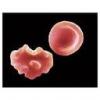Leaderboard
-
Points824Posts
-
.jpg.c873029d6ea548a78cb17a21407a1303.jpg) Points2,989Posts
Points2,989Posts -
-
Points8,944Posts
Popular Content
Showing content with the highest reputation on 05/29/2015 in all areas
-
MLT vs MT
MLT vs MT
bldbnkr and 2 others reacted to David Saikin for a post in a topic
3 pointsDr Pepper has hit the nail on the head - the innate ability, initiative and interest of the worker. Regardless of education - these are qualities I look for in BB techs, whether MLTs or MTs. I've worked with SBBs who aren't worth a damn and the best BBer I ever worked with and learned A LOT from was an MLT. I think there are other recent posts which address this topic somewhere on this site.3 points -
MLT vs MT
MLT vs MT
ElinF and 2 others reacted to Dr. Pepper for a post in a topic
3 pointsFor decades we hired only MTs, but have had to hire a few MLTs over the last couple of years due to MT shortages. I find the quality of work varies not from the number of college courses they took but the innate ability, initiative and interest of the worker. We train equally and job responsibilities are equal (although the MTLs cannot do some things, like review results etc). I had a MLT generalist on last weekend. He had a patient who got 4 units of blood the week before who now presented with anti-c and a positive DAT, weak mixed field. Pretty classic delayed reaction, except that the eluate reacted with all the panel cells. DAT was negative the week before. He dug into it and tested some more c-negative cells and found that there was also anti-Fya and -Jkb in the eluate (but not in the plasma yet). En route he tested the eluate with ficin-treated cells and PeG and ficin-treated some additional ones himself to help untangle the specificities. I did give him some phone coaching along the way, but it was an excellent job of blood banking. "Just" a MLT, but he really digs BB.3 points -
New BB tech - need some comforting words
New BB tech - need some comforting words
Michaele and 2 others reacted to tbostock for a post in a topic
3 pointsSounds like you made really good decisions but I agree with a couple things the other folks above talk about: 1. As a new BB tech, you'll need more backup and support. 2. Keep learning; knowing that Anti-M is usually not a big deal could have been a little calming for you. 3. When someone is truly exsanguinating, you can safely ignore antibodies until they stop bleeding. As they say "incompatible blood can be fatal, but death is always fatal". If you never have knots in your stomach again, you may not be a good Blood Banker. We will never be perfect, and it's the adrenaline rush that you get with cases like this that keep you learning and also remembering why you work in this crazy field. Not too many people get to go home and say "I helped to save someone's life today".3 points -
New BB tech - need some comforting words
New BB tech - need some comforting words
L106 and one other reacted to David Saikin for a post in a topic
2 pointsAll of us Blood Bankers (and you are now one of us) have had to deal with scenarios that helped us develop both our knowledge and technical abilities in Immunohematology. If you stay primarily in the BB you will develop the knowledge and with that the confidence to handle the stresses of those providing direct patient care. Most docs don't care about the nuances of Blood Banking, they care about getting the components they need and they usually need them NOW! Eventually you will experience most of the scenarios described by the very experienced folks who have responded to your post. As intimated above - in dire situations getting the patient ABO compatible rbcs is the most crucial consideration - exsanguination cannot be cured, almost everything else can be dealt with after the fact. NEVER let the docs compel you to break policy (eg reducing incubation times or sending the plasma frozen to them to "melt") - your facility should have a policy to deal with outlying situations - become familiar with it. In my experience most crises do not occur on the day shift. Best of luck! Decades ago I was the night guy in a tertiary care university hospital. My Medical Director told me many times he liked me working nights 'cuz I wasn't afraid to say "no". That is the type of confidence you will develop if you stay in the field. I have found that common sense really helps when the going gets rough.2 points -
New BB tech - need some comforting words
New BB tech - need some comforting words
L106 and one other reacted to Dr. Pepper for a post in a topic
2 pointsDitto to all the above. You did a fine job. A few thoughts: 1. Your BB should have some procedures regarding "what if" situations (uncrossmatched blood, uncrossmatched blood with antibodies, etc). An emegergency release form with several check boxes for different scenatios is helpful; there was a thread a few months ago where someone had added the relative risks of hemolytic reactions under those scenarios. If you don't have those in place, and you've got a decent relationship with your supervisor, you could gently suggest that they could be very helpful to a newbie (as well as everyone else). 2. Practice your emergency issue scenarios. The Boston Mathathon bombing victims did very well because the hospitals treating them had active trauma units and held frequent drills. 3. Someone should always be available to give a helping hand, for both benchwork or advice. 4. Someone exsanguinating bleeds out their antibodies, too. Your patient may have a delayed reaction down the road but at least they'll be alive to do so! Worst I had it was years ago with a ruptured AAA who had anti-K. The anti-K antiserum used an indirect AHG test in those days, so there was a time constraint. My coworker and I kept ahead for about 25 units, then ran out of screened, crossmatched blood. The OR called and said if we don't get 10 units RIGHT NOW the patient will die. So we grabbed 10 units, stuck a segment from each onto the counter with a bag sticker, tossed them in a pile on the dumbwaiter and sent it up a floor to the OR. And did this again. We eventually caught up, and the patient did indeed die, but not from a reaction or lack of blood.2 points -
New BB tech - need some comforting words
New BB tech - need some comforting words
David Saikin and one other reacted to Joanne P. Scannell for a post in a topic
2 pointsThere's not much I can add to what has already been stated ... a learning experience, talk about it so you can be better prepared next time, etc. Except ... 1. Your supervisor dropped the ball here. As 'Quality Guy' quoted CLIA (and it should be a 'rule' regardless of who requires it), your supervisor should have a 'call me anytime and if you can't get me, call ____' with the phone numbers perpetually posted at every BB phone.As far as the policy about 'the patient has not been transfused so you do not need to repeat the workup' - yes, it may be a rational thing to do, but unless this exception is written in your policies, you are not free to skip the testing. That exception should be written in your procedures and you should have been informed of it during your training. Sounds like you were not trained to deal with 'unusual crisis' cases. Were you trained in what antibodies are truly 'clinically signficant'? Were you trained what to do if you have a crisis patient who has 'clinically significant antibodies'? ... or other issues like IgA Deficiency, Sickle Cell Protocol, etc.?2. "Remember exanguination is a lot harder to treat than a transfusion reaction." Keep in mind that it's up to the attending MD to decide if the patient can wait until all the required testing is done or not ... it's not the Blood Bank's responsibility. All the demands, threatening statements, and loud voices are not going to change that fact. The responsibilities of the BB Tech are: to inform the requesting MD of any additional risks (e.g. clinically signficant antibody, IgA Deficiency)to convey to the requesting MD the TIMING for filling the order (very important, they will change care plans based on what is said) and not burdening them with the details about 'how'.to do whatever tasks are necessary to get the safest blood out the door in a timely manner in accordance to whatever can be done in the given period of time, e.g. Group O RBCs vs Type Compatible RBCs vs crossmatched RBCs.to focus on those tasks, not worrying about what's happening in the ED or who's screaming on the phone or what MAY happen 'if'.Yes, it's all these things that help techs get through these tougher situations. You lucked out with this crisis, but as you are feeling, you need more support and more information ... get those things before this happens again.2 points -
DATs on Cords in Gel
DATs on Cords in Gel
OkayestSBB reacted to Malcolm Needs for a post in a topic
1 pointFirst of all, there is NOT a need to wash the red cells, whether they be cord cells or red cells from any other source; that is rather the point of the gel technique (read Lapierre's original paper for an explanation, as to why - because it is really too long and complicated to explain here in one post - except to say that the plasma (and, therefore, the free antibodies, do not pass through the gel, whereas the red cells do, unless they are sensitised, and are agglutinated by the AHG in the gel). Secondly, the red cell suspension should ALWAYS be made by automated pipette (or something similar that is accurate), because the human eye is NOT accurate, and will mess up the whole technique.1 point -
Meditech and TAR
Meditech and TAR
mollyredone reacted to jschlosser for a post in a topic
1 pointWe went live with TAR in January and I'm quite disappointed. The only advantage is the barcode scanning of the patient identification to product. In the lab we have delta checks and other flags that ask us if we need recheck an abnormal value but in TAR nurses can enter a 0 blood pressure or a 500 degree temperature with no checks or alerts. Why isnt there criteria that if a temperature increases by a certain amount TAR alerts the nurse that a transfusion reaction may be happenning or if the oxygen saturation declines think TRALI? Is this something that is possible with TAR and our IT just hasn't included?1 point -
Meditech and TAR
1 pointFirst of all, TAR is great once all of the nurses are trained and up to speed. One thing I have on my to-do list is to get rid of our paper transfusion records and switch to stickers. Verification information is captured via the use of the electronic barcoding system. They have to enter their electronic signature/PIN. They could always choose to neglect to do vitals but for us it was better that it was on the TAR because a) it matched their current mode of documenting vitals into the EMR critical care units have the option of transmitting data from monitors. The volume transfused is captured when they electronically stop the transfusion. Everything is auditable in lab module and EMR. Depending on how your team decides to set things up, all data are editable for up to 99 hours by nursing personnel.1 point
-
New BB tech - need some comforting words
New BB tech - need some comforting words
Malcolm Needs reacted to DaBears for a post in a topic
1 pointThanks for all of the responses and advice! I have a list of things I am going to discuss with my supervisor when she returns. I appreciate all the words of wisdom and pointers. I'll keep ya posted and definitely going to browse this forum A LOT!1 point -
New BB tech - need some comforting words
In my opinion,knowledge is power. If you have access to a Technical Manual or some other Immunohematology-type text book, just start reading. Sometimes, lack of knowledge in theory and hamper your critical decision making skills, as maybe happened with your anti-M. Also, if you get a chance, spend some time on day shift and see how those folks handle antibodies and emergencies. Granted, it will be different on evening shift, but at least you can observe their thought processes and process flow. I am a supervisor at a non-trauma center community hospital and my techs call me at night, on weekends and when I'm on vacation. I'm more knowledgeable on day to day stuff than our pathologist. But I also TALK to people and see if there's any learning opportunity that they need to make them more confident, whether that's doing an in-service with me, having me work with them for part of a shift or having them join us on day shift. It's a coordinating effort but well worth it. I want my techs to be confident and one of the better ways to do that is teach them where to find the information they need and how to make good decisions.1 point
-
New BB tech - need some comforting words
You can have it from me- You did a great and thorough job from what you are telling us! Good for you! I don't think the pit in the stomach ever really goes away and I think having that keeps you on your toes, keeps you from getting complacent and potentially miss something. So you had a rotten situation, did all the right things, and it worked out- again good on 'ya!! I can't think of an antibody situation offhand that I was witness to, but I have "fond" memories of working alone overnight when a newborn was in crisis and the MD came flying into the Blood Bank begging me for blood, no time for any paperwork, just PLEASE let him have one of the Oneg Pedi units off the shelf. He grabbed one as I opened the frig and out the door he flew. That one has stayed with me for 40 years. Oh yeah, about 15 years ago there was the actively gushing patient on the OR table with 5 antibodies and the surgeon came rushing in begging for "ONeg blood, that's all we need" and I had to 1) try to explain to him (calmly so he wouldn't hear my heart beating very loudly) that ONeg wasn't the solution to multiple antibodies 2) make the BB tech who was screaming at him "you're gonna kill the patient" sit down and shut up and 3) pray as we waited for delivery of several screened units from the Blood Center next door. We got the units, out he went and the patient did well. So your future events will likely happen. Try to read up on problem situations when you can to keep fresh, including any online teaching tools you can use from your vendor or here in the wonderful PathlabTalk. We are here for you!1 point
-
New BB tech - need some comforting words
New BB tech - need some comforting words
Malcolm Needs reacted to Emelie for a post in a topic
1 pointWhere I work we're alone during nights and weekends, so situations that would have been perfectly fine daytime with a couple colleagues around can easily get quite overwhelming with only a doctor on call-duty to discuss with. Like when there's a traffic accident or some other trauma with several badly injured victims and one of them turn out to have a pos ab screen - it can be quite stressful to set up an ab panel while simultaneously handing out lots of blood and keeping up with the thawing of FFP, and if our stocks are getting low, managing the transfer of blood and platelets from other hospitals to our own. I rarely encounter those extreme situations, but I had a slightly annoying weekend a couple months ago, working alone, when an ER patient needed a lot of blood acutely and of course she had a pos ab screen with several ab's. There wasn't a chance for me to identify them properly so I phenotyped her thoroughly and cross-matched units. I tested her against more than 20 units that fit her phenotype as far as I knew (Rh, K, Fy, Jk, MNS) and still only found 2 that were compatible. She received a lot more units of rbc's that weekend and we do all xm manually, but the most frustrating thing was when our primary "help-lab" sent back the results from her blood work marked as "Un-identified antibodies"... and it's not a one-time only patient, this one was at the hospital for quite some time getting several more transfusions and will most likely be back. We've sent new samples to a ref lab and hope for more exciting answers this time In my opinion, it's important to always double-check with the medically responsible doctor before doing anything when you're uncertain, rather ask for expert advice one time extra than one too little, and document everything they say in order to keep your back free. As a blood lab tech I am not qualified to make decisions regarding patients, no matter what opinions I harbour (though it's obviously important to always give sufficient info about ab's and other findings to the patient's doctor to help them make proper decisions). And, of course, always do a background check on a patient when something seems really odd, bm transplants and recent transfusions at other hospitals can mess things up, and there might be important information to be had1 point -
QC on Panels
1 pointThere has been a lot of conern in my area about inspectors asking for daily panel QC. As is often the case, we need to educate them on the intent of the standard. I verified with AABB Accreditation who also holds deemed status as CLIA and CAP assessors, that the whole issue hangs on the word "detection" There have been a couple of folks in my area cited for this and they challenged it with CAP (who was performing the assessment) and they won. So I wouldn't upset the assessor, just wait and call whoever the inspecting body is and sort it out. By both FDA and AABB we must be able to detect clinically significant antibodies and provide crossmatch compatible units for transfusion. The identification piece is 1) an extention of your screen cells (more of the same manufacturing process); 2) often completed by a reference lab (within or outside of your system) and 3) is not specifically called out by any accrediting body becasue they follow FDA's lead. Sometimes we are such a detail-driven group it is hard to take the step back and look at the bigger picture.1 point
-
Comptency Assessment in Immunohematology Lab
Comptency Assessment in Immunohematology Lab
pstruik reacted to Malcolm Needs for a post in a topic
1 pointDAT2817.docFRM5138 (1).doc Hope these are of some help.1 point -
Blood Clinical Laboratory Report
Blood Clinical Laboratory Report
Kandahlawi reacted to Malcolm Needs for a post in a topic
1 pointHi Linyuan, I'm afraid there is no easy way to explain all this without using a lot of jargon that make it difficult to understand, but I will do my best. Although most people have heard of the ABO and the Rh Blood Group Systems, there are, in fact, 30 different Blood Group Systems. Within most of these systems, there are several antigens (mostly sugars or proteins that are expressed on the surface of the red cell). For example, within the ABO Blood Group System, there are three antigens (A, B and A1 - group O individuals have no ABO antigens), however, within the Rh Blood Group System there are well over 40 different antigens. The Mi(a) antigen is found within the MNS Blood Group System (it was the 7th antigen found within this system, which also has over 40 different antigens). Altogether, there have been something over 350 different human red cell antigens described, although, of course, no everyone expresses everyone of these antigens on their red cells. If you lack a particular antigen, you can make antibodies against this particular antigen (alhtough you do not make antibodies against every antigen that you lack. Very often, although not always, you have to be stimulated to produce these antigens by either having been given blood that expresses an antigen that you lack, or by carrying a baby whose red cells express an antigen that you lack (expressed because the baby inherits a gene from the father that leads to the expression of this antigen). Sometimes, however, the body produces antibodies without any apparent stimulation (such as anti-A and/or anti-, although, in reality, there are stimulants within the environment. Now, to try to answer your questions. 1) No, there is ABSOLUTELY nothing wrong with your blood, in terms of you producing the anti-Mia. Many millions of people throughout the world produce red cell antibodies, and they are as fit as a fiddle. 2) All antibodies are proteins. There are five basic types of these (IgA, IgD, IgE, IgG and IgM). All of these basic types produce lots of different specific antibodies - in your case, the specificity is anti-Mia. The two types we are interested in, in the world of transfusion, are IgG (which are a sort of Y shape) and IgM (which are a sort of star shape). What we are looking at, in the laboratory, is the ability for these antibodies to cause clumping (the correct word is actually agglutination) of red cells that express the corresponding antigen. In your case, your anti-Mia will cause Mi(a+) red cells to clump, but not Mi(a-) red cells to clump. IgM antibodies tend to cause this clumping of red cells without any help. IgG antibodies, however, are smaller than IgM antibodies, and cannot "reach across" between two red cells to cause this clumping without a "bit of help". All antibodies, as I said are proteins, and all of these are a particular kind of protein called immunoglobulins. In the case of your anti-Mia, it would appear to be an IgG antibody (from the report), and one way that we can "help" the IgG antibodies to "reach across" two red cells to cause the clumping is to perform a particular test called an indirect antiglobulin test (I won't go into details - it is fairly comlpicated to explain, but is a very sensitive test), but for this test we use a particular reagent called anti-human globulin, and this is the AHG to which the report refers. So, if you require a blood transfusion, the laboratory would test (cross-match) the proposed units by this test, using AHG, to ensure that the blood is compatible with your antibody (i.e. your antibody would NOT cause the red blood cells to clump). If your antibody did cause the red cells to clump, and you were transfused these red cells (don't worry - this blood would NOT be given to you - that is the point of the test), then your antibody could destroy these transfused red cells, and you could become very ill indeed (I STRESS AGAIN, the point of testing the blood to be transfused to you is so that this does not happen). Haemolytic disease of the newborn happens when you have an IgG antibody of some specificity (in your case anti-Mia) and the foetus's red cells express the corresponding antigen (in your case Mia). The antibody can cross the placenta (IgM antibodies do not) and can destroy the foetuses red cells (haemolyse them). This used to be a real problem, but nowadays, as long as the pregnancy is well-monitored and, if considered necessary for the baby's health and wellbeing, there are such interventions as early delivery or intrauterine transfusions, then the baby will be born with no problems. I must stress, however, that many women have produced red cell antibodies, of many different specificities, and have had babies that are totally unaffected, despite the fact that they express the corresponding red cell antigen on their red cells - so don't worry! I hope this explanation helps to some degree, but, if not, say so and I, or one of the many really nice people on this site, will try to explain it in a different way.1 point -
abbreviated panels
abbreviated panels
joe0310 reacted to Likewine99 for a post in a topic
1 pointWe report these abbreviated panels as "anti-D passive". If we can't get a definite date of Rhogam administration we treat it like a "real anti-D', do the required selected cells and call it "anti-D".1 point -
billing for Antibody identification
"Necessary" is one of those interesting words in blood banking. It isn't necessary (read: required) to do alot of the things we do, but I can't sleep at night unless we do them ... We run an auto control on full panels (not r-sets for passive Anti-D) and run a DAT only if the auto ctl is positive. We report Anti-IgG and Anti-C3 when doing DATs, and leave it up to the clinician if an eluate is warranted (except post trn rxn). We decided against automation years ago, since our volume is so low. We run manual gel for screens and panels, and tube testing for everything else. But if you already have the automation available, you might as well use it, since it's more consistent. If you are a larger site and have a patient population to support it, you could have 1-2 people on the day shift with expertise to do eluates, more extensive ABID's, etc. A second- or third-shifter could leave the routine tough ones for you, and you could decide how much you want to play with it before forwarding it to a reference lab. Cost becomes a big factor here, since reagent antisera is very expensive, as is more PT Surveys, training, SOPs, etc.1 point
-
billing for Antibody identification
Every once in a while, someone presents a poster at the annual meeting about this topic. Their recommendation: do some of it yourself. Biggest decision-maker is whether you use gel for screens; no cell washer is needed if you do, and we rarely use our old one anymore. When I took over my current position, they were sending all positive screens out -- long TAT! At ~$600 per workup, it was a no-brainer that identifying just one antibody ourselves would pay for doing workups in-house. It doesn't take much refrig space for a panel and a few common antisera, and the extra gel cards are stored at RT. The one PT survey is not that expensive. Our techs were quite trainable, and most had experience elsewhere. The big decision I had was how much to do. Sure, we could do alot, but that means more panels, more expensive antisera, a bigger PT survey, and definitely more training. There were 2-3 new SOPs added to the manual. I started by studying the patient population, finding mostly Anti-D, Anti-K, Anti-E, Anti-c and an occasional Anti-Jka dominated our history files (>95%). Pos DATs were almost always warm-auto's reactive with everything, so eluates were out of our league. We have never had a sickle cell patient. Although we do few deliveries, we do Fetal Screens in-house also. So, stocking one panel and the above antisera (without the Anti-c) decreased our TAT on 95% of pos screens to <2 hrs and saved about $50K this year -- no cost analysis needed! Anthing not identifiable with the one panel is sent out, as are eluates. We order Ag-neg units for Anti-c and historical Ab's that are no longer reacting with screen cells. And our techs like the extra intellectual stimulation at our small rural facility. No complaints from the CFO or the medical staff either ... For small facilities that have only one busy tech on-site, you have to make sure that they have the time to perform a panel (or have an on-call person available to help).1 point






